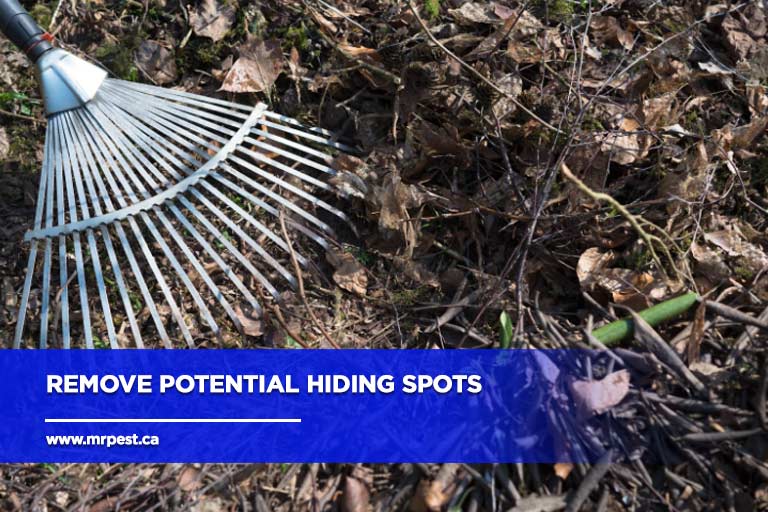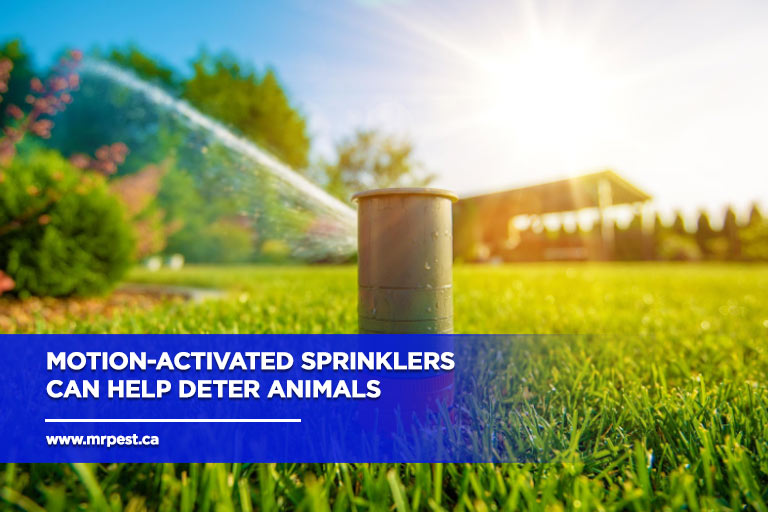Sharing your Midland space with nature is a joy, but it can sometimes lead to unwanted encounters with raccoons, squirrels, and other critters. Protecting your property from these curious intruders is essential for maintaining a safe and serene home.
In this blog, we’ll share practical tips to help you manage and prevent wildlife issues, ensuring a harmonious coexistence with our furry neighbours.
Identifying Common Wildlife Intruders in Midland
Living in Midland means enjoying the picturesque surroundings and the vibrant local wildlife. However, this proximity to nature also brings a variety of animals that might see your home as an extension of their habitat. Here are some common wildlife intruders you might encounter:
- Raccoons: These nocturnal creatures are known for their dexterity and curiosity. They often raid garbage bins in search of food and can create quite a mess. Look for overturned bins and tracks around your property as signs of their presence.
- Squirrels: Agile and persistent, squirrels can cause significant damage by chewing through wires and nesting in attics. You might hear scratching noises or see nests in trees near your home.
- Bats: While beneficial for controlling insect populations, bats can pose health risks if they roost in your attic. Look for droppings, known as guano, and listen for high-pitched squeaking sounds at dusk.
- Skunks: Recognizable by their black and white colour, skunks are infamous for their strong odour. They dig up lawns in search of insects and can leave behind telltale holes and a lingering smell.
- Deer: Though less problematic indoors, deer can wreak havoc on gardens and landscapes. Look for hoof prints, damaged plants, and droppings as indicators of their visits.
Preventive Measures for Your Property
Preventing wildlife from entering your home is far easier and less stressful than dealing with an infestation. Here are some effective steps you can take to deter wildlife from making your property their home:
Secure Trash and Food Sources
- Lock Trash Bins: Use wildlife-proof bins or secure lids with bungee cords to prevent raccoons and other animals from accessing your garbage.
- Store Pet Food Properly: Keep pet food indoors or in sealed containers to avoid attracting hungry critters.
Seal Entry Points
- Inspect Your Home: Regularly check for gaps and cracks around your home’s foundation, roof, and walls.
- Seal Openings: Use materials like steel wool, caulking, or hardware cloth to seal any potential entry points that wildlife could use to get inside.
Maintain a Clean Lawn

- Clear Debris: Keep your lawn tidy by removing leaf piles, fallen branches, and other debris that could provide hiding spots for animals.
- Trim Vegetation: Cut back overgrown shrubs and trees that are close to your home, as they can serve as pathways for wildlife to access your roof or attic.
Install Fencing and Barriers
- Fence your garden: Protect your garden with fencing to deter deer and rabbits. Ensure the fence is tall enough and buried a few inches underground to prevent digging.
- Block Chimneys and Vents: Install caps on chimneys and covers on vents to block animals like bats and birds from entering your home.
Use Natural Deterrents

- Utilize Homemade Repellents: Create natural repellents using ingredients like hot pepper spray, vinegar, or citrus peels. These can be applied around your property to deter wildlife.
- Install Noise and Light Deterrents: Motion-activated lights and noise devices can scare away animals and prevent them from getting too comfortable on your property.
Perform Regular Maintenance
- Schedule Inspections: Regularly inspect your home and property for signs of wildlife activity and address any issues promptly.
- Ongoing Upkeep: Keep up with repairs and maintenance tasks to ensure your home remains secure and unattractive to wildlife.
Humane Wildlife Removal Techniques
Even with the best preventive measures, wildlife can sometimes find their way into your home. When this happens, it’s important to use humane methods to remove them. Here are some effective and compassionate techniques for wildlife removal:
“Although other animals may be different from us, this does not make them less than us.” – Marc Bekoff
Trap and Relocate Safely
- Proper Traps: Use live traps designed for the specific type of animal you’re dealing with. Ensure the trap is appropriately sized and placed in an area where the animal is active.
- Relocation Guidelines: After capturing the animal, relocate it at least 10 kilometres away from your property to a suitable habitat. Make sure to follow local regulations regarding wildlife relocation.
Install Exclusion Devices
- One-Way Doors: Install one-way doors on entry points to allow animals to leave your home but prevent them from re-entering. This is particularly effective for animals like raccoons and squirrels.
- Repellents: Use natural repellents like ammonia-soaked rags, predator urine, or commercial wildlife repellents to encourage animals to vacate your property.
Handle and Release Carefully
- Protective Gear: Always wear protective gloves and clothing when handling traps or interacting with wildlife to avoid bites, scratches, and disease transmission.
- Minimize Stress: Handle the animals as little as possible to minimize their stress. Cover traps with a cloth to calm the animal during transportation.
Call a Professional
- When to Call a Professional: If you encounter a persistent problem, or if the animal poses a risk to your health and safety, it’s best to call a professional service on wildlife or pest control in Midland.
- What to Expect: A professional will conduct a thorough inspection, safely remove the animal, and offer advice on preventing future issues.
Understanding Legal and Ethical Considerations for Wildlife Control
When dealing with wildlife on your property, it’s crucial to understand and respect the legal and ethical guidelines. Here are some key points to keep in mind:
Know the Laws
- Wildlife Protection Regulations: Familiarize yourself with Ontario’s wildlife protection laws. These laws are in place to ensure the humane treatment of animals and to protect certain species.
- Permit Requirements: Some wildlife removal activities may require permits. Check with local authorities to ensure you comply with all necessary regulations.
Ensure Humane Treatment
- Use Ethical Methods: Always opt for humane methods of wildlife control. Avoid traps or techniques that could harm or stress the animals unnecessarily.
- Consider Animal Welfare: Think about the well-being of the animals you’re dealing with. Relocate them to suitable habitats where they can thrive.
Work with Professionals
- Hire Ethical Wildlife Control Services: Choose wildlife control companies that prioritize humane practices. Ask about their methods and ensure they comply with local laws and ethical standards.
Follow Relocation Guidelines
- Legal Compliance: Adhere to local regulations regarding the distances and areas where animals can be legally released.
Educate Yourself and Others
- Learn More: Stay informed about wildlife behaviour and control methods. Resources like Ontario’s Ministry of Natural Resources and Forestry can provide useful information.
- Spread Awareness: Share your knowledge with neighbours and the community to promote humane wildlife control practices.
Plan for Coexistence
- Respect Nature: Remember that we share our environment with wildlife. Strive to coexist peacefully by implementing preventive measures rather than reactive ones.
- Support Conservation Efforts: Engage with local conservation initiatives and support efforts to protect wildlife habitats.
Managing wildlife on your property in Midland requires a proactive and humane approach. By following this guide, you can effectively protect your home while respecting the local wildlife. Remember, coexistence with nature is possible with the right strategies and a little bit of effort.
If you need professional assistance with wildlife control in Midland, contact Mr Pest Control for expert and humane services. Our team is ready to help you safeguard your home and ensure peace of mind. Call us today at (705) 739-7378 for a free consultation and take the first step towards a wildlife-free property.



